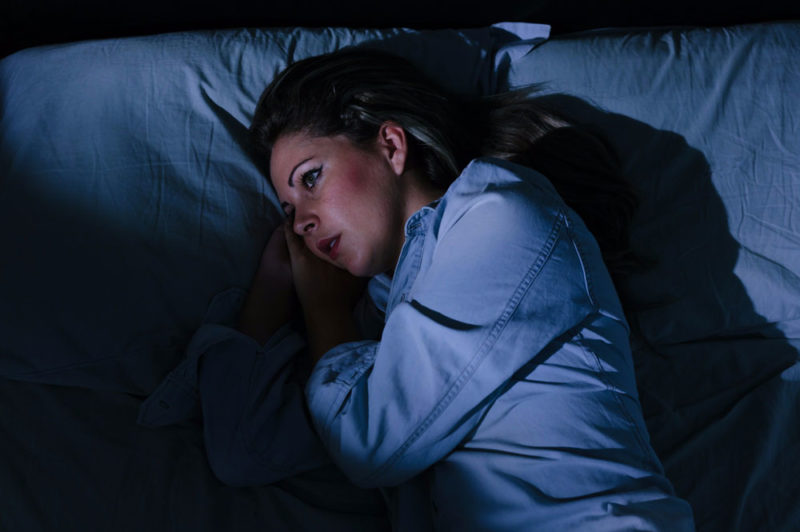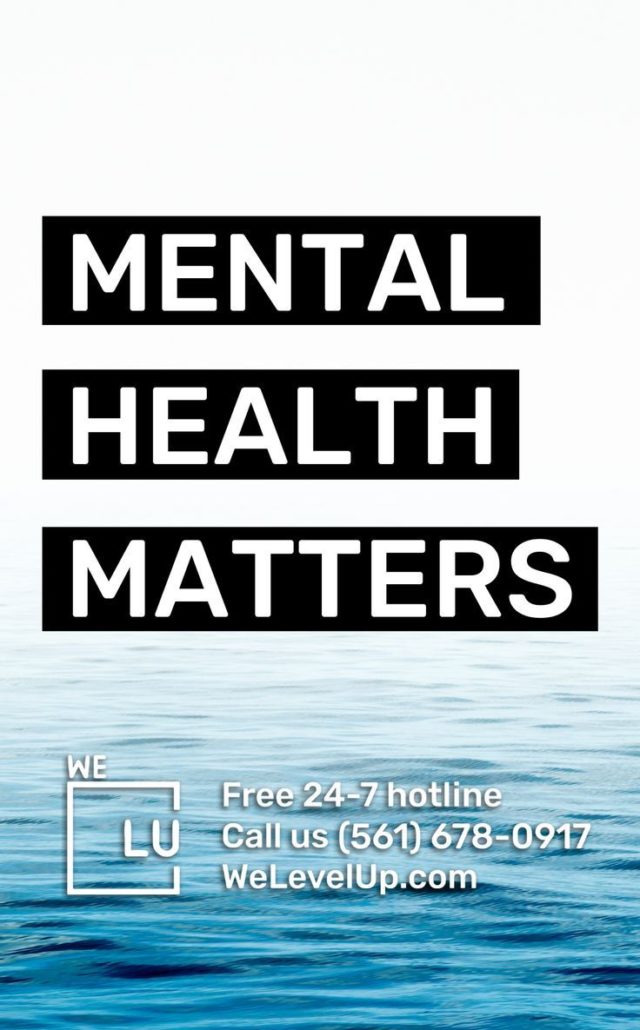What do the Terms Anxiety and Depression Mean? Difference Between Anxiety and Depression
Anxiety and depression difference: The fact that one term denotes a single sickness while the other denotes a collection of ailments is a significant distinction between anxiety and depression. What is the difference between anxiety and depression? The main difference between depression and anxiety is:
- In reality, depression is one illness. There are numerous distinct symptoms (see below). And different people may experience it very differently. However, the term “depression” only refers to one illness.
- The word “anxiety” can indicate a number of different things. We all experience anxiety occasionally, and the word “anxiety” can be used to simply describe that feeling. However, when we use the word anxiety in a medical context, it actually refers to anxiety disorder.
Some less frequent conditions are included under anxiety. These include panic disorders and phobias. However, generalized anxiety disorder is the most prevalent (GAD). In the US, a generalized anxiety disorder may affect four to five out of every 100 persons. In this post, we’ll concentrate on generalized anxiety.
What is Anxiety Disorder? Anxiety and depression difference
Periodic anxiety is a normal component of life, according to The National Institute on Mental Health. When faced with a challenge at work, before a test, or before making a crucial decision, you could experience anxiety. However, anxiety disorders involve more than just passing apprehension or terror.
Anxiety and depression difference: It’s critical to get anxiety treatment as soon as you can since, for someone with an anxiety condition, the anxiety does not go away and can actually worsen over time. The symptoms might affect daily tasks like work performance, academic progress, and interpersonal connections. Generalized anxiety disorder, panic disorder, and various phobia-related disorders are only a few of the several types of anxiety disorders.
Anxiety and depression difference: People with a generalized Anxiety disorder (GAD) display excessive Anxiety or worry, most days for at least 6 months, about many things such as personal health, work, social interactions, and everyday routine life circumstances. Fear and Anxiety can cause significant problems in areas of their life, such as social interactions, school, and work.

Skip To:
- What do the Terms Anxiety and Depression Mean? Difference Between Anxiety and Depression
- Anxiety Fact Sheet
- Anxiety and Depression Statistics
- What’s the Difference Between Anxiety and Depression? Anxiety and Depression Difference
- Difference between stress and anxiety and depression
- Can you have anxiety and depression at the same time? How is depression different from anxiety?
- Similarities in treatments (Difference between anxiety and depression medication)
- We Level Up Dual Diagnosis Treatment
Learn More:
- Do Crystals For Depression Work?
- Depression and ADHD: What’s the Link?
- Autism and Depression Connection, Diagnosis & Treatment
- Signs of Depression in Men, Causes, & What to Know
- Rehab for Depression & Anxiety Treatment
- What is the Best SSRI for Anxiety?
- Social Anxiety Disorder
- Grounding Techniques for Anxiety Attacks
- Mental Health Poems that are Powerful and Healing
- Short-Term Disability Mental Health

What is Depression? Anxiety and depression difference
Depression (also known as Major Depressive Illness or Clinical Depression) is a common but significant mood disorder, according to the National Institute of Mental Health. It produces severe symptoms that interfere with your ability to function on a daily basis, including sleeping, eating, and working. The signs of depression must last for at least two weeks before a diagnosis may be made.
Depression treatment is required when depressive symptoms are chronic and do not go away since some types of depression are slightly different or may arise in unusual situations.
Types of Depression: Anxiety and depression difference
- Persistent depressive disorder (also called dysthymia): is a depressed mood that lasts for at least two years. A person diagnosed with persistent depressive disorder may have episodes of major Depression along with periods of less severe symptoms, but symptoms must last for two years to be considered a persistent depressive disorder.
- Psychotic Depression: occurs when a person has severe depression plus some form of psychosis, such as having disturbing false fixed beliefs (delusions) or hearing or seeing upsetting things that others cannot hear or see (hallucinations). The psychotic symptoms typically have a depressive “theme,” such as delusions of guilt, poverty, or illness.
- Bipolar disorder: is different from Depression, but it is included in this list because someone with bipolar disorder experiences episodes of extremely low moods that meet the criteria for major Depression (called “Bipolar Depression”). But a person with bipolar disorder also experiences extreme high – euphoric or irritable – moods called “mania” or a less severe form called “hypomania.”
- Postpartum Depression: is much more serious than the “baby blues” (relatively mild depressive and anxiety symptoms that typically clear within two weeks after delivery) that many women experience after giving birth. Women with postpartum Depression experience full-blown major Depression during pregnancy or after delivery (postpartum depression). The feelings of extreme sadness, anxiety, and exhaustion that accompany postpartum depression may make it difficult for these new mothers to complete daily care activities for themselves and/or their babies.
- Seasonal affective disorder: is characterized by the onset of Depression during the winter months, when there is less natural sunlight. This Depression generally lifts during spring and summer. Winter Depression, typically accompanied by social withdrawal, increased sleep, and weight gain, predictably returns every year in seasonal affective disorder.
Get Help. Get Better. Get Your Life Back.
Searching for Accredited Dual Diagnosis Mental Health Centers Near You?
Even if therapy failed previously, or are in the middle of a difficult crisis, we stand ready to support you. Our trusted behavioral health specialists will not give up on you. When you feel ready or just want someone to speak to about counseling alternatives to change your life call us. Even if we cannot assist you, we will lead you to wherever you can get support. There is no obligation. Call our hotline today.
FREE 24/7 Dual Diagnosis Mental Health Services HotlineAnxiety Fact Sheet
Anxiety Overview
A mental health condition marked by intense feelings of worry, anxiety, or fear that interferes with daily activities. Panic attacks, obsessive-compulsive disorder, and post-traumatic stress disorder are a few examples of anxiety disorders.
The inability to put aside worry, restlessness and stress that is out of proportion to the severity of the incident are among the symptoms.
Counseling or medicine, including antidepressants, are used as forms of treatment.
Anxiety Symptoms
- Behavioral: hypervigilance, irritability, or restlessness.
- Cognitive: lack of concentration, racing thoughts, or unwanted thoughts.
- Whole body: fatigue or sweating
- Also common: anxiety, excessive worry, angor animi, fear, insomnia, nausea, palpitations, or trembling
Anxiety Treatment
- Support group: A place where those pursuing the same disease or objective, such as weight loss or depression, can receive counseling and exchange experiences.
- Cognitive behavioral therapy: A conversation treatment that aimed to change the negative attitudes, actions, and feelings connected to psychiatric discomfort.
- Counseling psychology: A subfield of psychology that handles issues with the self that are connected to work, school, family, and social life.
- Anger management: To reduce destructive emotional outbursts, practice mindfulness, coping skills, and trigger avoidance.
- Psychoeducation: Mental health education that also helps individuals feel supported, validated, and empowered
- Family therapy: psychological counseling that improves family communication and conflict resolution.
Anxiety and Depression Statistics
It’s critical to understand the distinction between anxiety and depression. Anxiety, in its most basic form, is an excessive feeling of worry, whereas depression, in its most basic form, is an excessive feeling of worthlessness and hopelessness. It is conceivable for someone to experience depression and anxiety simultaneously.
6.8 million
GAD affects 6.8 million adults or 3.1% of the U.S. population, yet only 43.2% are receiving treatment.
Source: National Institute on Mental Health
19 million
19 million adults experience specific phobias, making it the most common anxiety disorder in America.
Source: ADAA, 2020
17.3 million
Major depressive disorder affects approximately 17.3 million American adults or about 7.1% of the U.S. population age 18 and older.
Source: National Institute of Mental Health
What’s the Difference Between Anxiety and Depression? Anxiety and Depression Difference
Anxiety and depression difference: Generalized anxiety disorder and depression can both have emotional and physical symptoms.
What is the difference between depression and anxiety? Mood and feelings
Anxiety and depression difference: Depression is characterized by a depressed mood for two weeks or longer, as well as a loss of interest in or enjoyment from most activities. They are said to be the “core symptoms” of depression. Other mood-related signs and symptoms that a depressed person may encounter include:
- Guilt
- Helplessness
- Feelings of worthlessness, low self-esteem, or low confidence
- Thoughts of death or suicide
The difference in anxiety and depression: Similarly, generalized anxiety disorder centers on two ‘core symptoms. These are:
- Excessive anxiety
- Worry on most days for more than six months, and difficulty controlling these feelings of anxiety and worry

And again, there are further symptoms beyond these that someone may experience, such as:
- Feeling on edge or restless
- Irritability
With a generalized anxiety disorder, you may feel very worried about a range of everyday things. And there may not be one obvious logical cause for your anxiety.
The difference between anxiety and depression: Physical symptoms
What’s the difference between depression and anxiety? Both depression and generalized anxiety disorder have a number of somatic symptoms. For instance:
- Fatigue or tiredness
- Poor concentration
- Being fidgety or unable to sit still
- Difficulty sleeping
But there are also physical symptoms unique to both conditions. In depression, physical symptoms might include:
- Weight changes, often caused by changes in appetite
- Being slower in your movements
The physical effects of a generalized anxiety disorder include:
- Muscle tension and aches
- Headaches
- Sweating
- Dizziness
- Bowel problems
- A fast heartbeat and shortness of breath
All of the physical symptoms above can potentially be signs of other problems with your physical health.

End the Emotional Pain. Get Your Life Back.
Feeling Depressed, Anxious or Struggling with Mental Health Illness? Get Safe Comfortable Mental Health Dual Diagnosis High-Quality Therapy From Counselors That Care. Begin Your Recovery Now.
Hotline (855) 940-6125Difference between stress and anxiety and depression (The Difference Between Stress Anxiety And Depression)
- Depression is characterized as a state of being in which you have a persistently poor mood and have lost interest in activities you formerly found enjoyable. Additionally, you can have changes in your sleep, hunger, sense of guilt, lack of motivation, and general withdrawal from people.
- A sense of being overpowered is a common trait of stress. Your ability to cope may have been strained, or you may have been under too much pressure. While a little bit of stress can aid us in carrying out our daily tasks, too much tension leaves us feeling “distressed” and frequently worn out.
- Anxiety is the feeling that something awful is about to occur. Anxiety can be broad or specific to a location, circumstance, or object (phobia)
Can you have anxiety and depression at the same time? How is depression different from anxiety?
How is anxiety different from depression? The anxiety and depression difference it’s a complicated image. Some characteristics of depression and generalized anxiety disorder are unique, while others overlap. It is actually conceivable for someone to suffer both depression and anxiety at the same time, which only serves to muddle matters further.
In actuality, it’s fairly typical and not merely plausible. Most persons with a generalized anxiety disorder also experience depression, about half of them. The problems can be more severe and persistent than usual when they coexist in this way.
Additionally, it is possible to have symptoms of one ailment and a diagnosis of another (but at a level that on their own would not lead to a diagnosis). The overlapping nature of symptoms makes it challenging to provide precise figures. However, estimates of the percentage of depressed individuals who simultaneously exhibit symptoms of anxiety range up to 85%.
Mixed anxiety and depressive disorder (MADD) (anxiety and depression difference) is really viewed by many specialists as a distinct diagnosis in and of itself. Someone may exhibit symptoms of both disorders in this situation, but they are not severe enough to warrant an official diagnosis of either condition. However, this combination can still be very upsetting and have an impact on a person’s everyday life.
Anxiety And Immune System: Anxiety and depression difference
Your immune system serves as the body’s line of defense against viruses and germs. It is much more powerful than most people realize. Your body’s immune system swiftly eliminates any germs or bacteria you ingest since it is programmed to take whatever necessary precautions to prevent illness.
Can Anxiety Weaken Your Immune System?
Unfortunately, there is some evidence that excessive worry may actually cause the immune system to become significantly weakened. Anxiety and the immune system have a tangled relationship. It may cause the body to become stressed, which causes the release of the stress hormone cortisol. The body’s primary stress hormone, cortisol, functions much like nature’s alarm system. Although anxiety doesn’t make people sick, a compromised immune system may have trouble warding off pathogens when in contact with them.
First-class Facilities & Amenities
World-class High-Quality Mental Health Services & Behavioral Health Substance Abuse Treatment
Rehab Centers TourRenowned Mental Health Centers. Serene Private Facilities. Inpatient Rehab Programs Vary.
Mental Health Helpline (855) 940-6125Proven recovery success experience, backed by a Team w/ History of:
15+
Years of Unified Experience
100s
5-Star Reviews Across Our Centers
10K
Recovery Successes
- Comprehensive Dual-Diagnosis Treatment
- Complimentary Family & Alumni Programs
- Coaching, Recovery & Development Events
- Comfortable Onsite Medical Detox Center

Similarities in treatments (Difference between anxiety and depression medication)
When it comes to depression and generalized anxiety disorder, one clear similarity is the way they are treated. For both conditions, there are two main categories of treatment. These are:
- Psychological therapies
- Medicines
Anxiety and depression difference: Talking with a trained professional about your thoughts and feelings is a key component of psychological therapy. Cognitive behavioral therapy is one illustration (CBT). The goal of CBT is to address the interactions between your ideas, feelings, and behaviors.
Different types of depression and anxiety medicine: Antidepressant medications are prescribed for both diseases and are frequently beneficial. Selective serotonin reuptake inhibitors are the most popular type (SSRIs). However, the doctor could also explore a multitude of different options.
A combination of medications and psychosocial therapy is frequently used in treatment. This will be unique to each person and their circumstance. If the doctor believes that lifestyle factors may be causing the patient’s sadness or anxiety, they may also try to address these as part of the treatment.
Depression and generalized anxiety disorder are thus two distinct disorders. However, it is clear why they are frequently referenced together. They can occur simultaneously, share comparable symptoms, and respond to similar therapies. It’s crucial to get help if you’re having trouble managing your mood or if you recognize any of the signs listed below. Don’t be concerned about classifying something as depressive or anxious. Contacting your doctor is crucial so they can learn more and provide you with help if needed.
World-class, Accredited, 5-Star Reviewed, Effective Mental Health Dual Diagnosis Programs. Complete Integrated Inpatient Rehab with Free Post Discharge Therapy Planning.
CALL (855) 940-6125End the Emotional Pain Rollercoaster. Gain Stability & Happiness Through Recovery Treatment. Start Mental Health Counseling Today. Get Free No-obligation Guidance by Behaviroal Health Specialists Who Understand Mental Health Recovery.
We Level Up Dual Diagnosis Treatment
The exact definition of dual diagnosis (also referred to as co-occurring disorders) can differ between institutions. However, it is generally described as the specific treatment of someone who has been diagnosed with a substance use disorder and a mental health disorder at the same time.
Treating dual-diagnosis clients is a critical aspect of our inpatient treatment experience because co-occurring disorders are strongly correlated with instances of substance abuse. Creating a treatment plan that addresses the physical aspects of withdrawal, the psychological connection with drug use, and managing underlying mental health disorders is part of setting clients up for success.
A thorough mental health analysis identifies possibilities for treatment. Meeting with mental health counselors and medical care providers means access to behavioral therapy and medication treatment.
At our dual diagnosis treatment center, We Level Up can implement the highest quality of care. We recognize the fragile complexities of how mental and substance abuse disorders can influence others and sometimes result in a vicious cycle of addiction. That’s why we offer specialized treatment in dual-diagnosis cases to provide the most excellent chance of true healing and long-lasting recovery.
It can be challenging to accept that you may be living with a mental illness, but once it is properly diagnosed and treated, treating the presenting case of substance abuse can be magnitudes easier. Only a properly trained medical professional can diagnose these underlying conditions. If you believe you are suffering from a disorder alongside addiction, we urge you to seek a qualified treatment center to begin your journey to recovery. Call We Level Up today.
Experience Transformative Recovery at the We Level Up Treatment Center.
See our authentic success stories. Get inspired. Get the help you deserve.



Start a New Life
Begin with a free call to a behavioral health treatment advisor. Learn more about our dual-diagnosis programs. The We Level Up treatment center network delivers recovery programs that vary by each treatment facility. Call to learn more.
- Personalized Care
- Caring Accountable Staff
- World-class Amenities
- Licensed & Accredited
- Renowned w/ 5-Star Reviews
We’ll Call You
Difference Between Anxiety and Depression FAQs
-
Can Anxiety Raise White Blood Cell Count? Anxiety And Low White Blood Cell Count
Two prevalent mood disorders with a connection to systemic inflammation are depression and anxiety. Increased red cell distribution width (RDW) and white blood cell count (WBC) are linked to poor clinical outcomes in a range of pathological diseases. RDW is closely related to other inflammatory markers, and WBC is a non-specific inflammatory sign. As a result, we suggested that there may be a connection between these hematological inflammatory indicators and symptoms of depression or anxiety.
-
Can Stress And Anxiety Cause Low White Blood Count?
Can anxiety cause high white blood cell count? Red cell distribution width and white blood cell count are related to symptoms of depression and anxiety: a population-based study with sex-based analysis. Psychoneuroendocrinology.
Search We Level Up FL ADHD Resources
Sources
[1] National Institute of Mental Health – ‘Depression’ (www.nimh.nih.gov)
[2] U.S. Food and Drug Administration (FDA) (www.fda.gov/)
[3] Depression Treatment » Drug Alcohol Addiction Rehab
[5] NIMH – https://www.nimh.nih.gov/health/publications/social-anxiety-disorder-more-than-just-shyness
[6] Selective Serotonin Reuptake Inhibitors – National Center for Biotechnology Information, U.S. National Library of Medicine
[7] ‘Anxiety Disorders’ – National Institute Of Mental Health (Nimh.nih.gov)
[8] Psychopharmacology of anxiety disorders – National Center for Biotechnology Information, U.S. National Library of Medicine
[9] Products – Data Briefs – Number 379 – September 2020 (cdc.gov) Depression – National Institute of Mental Health
[10] Coping with Stress – Centers for Disease Control and Prevention